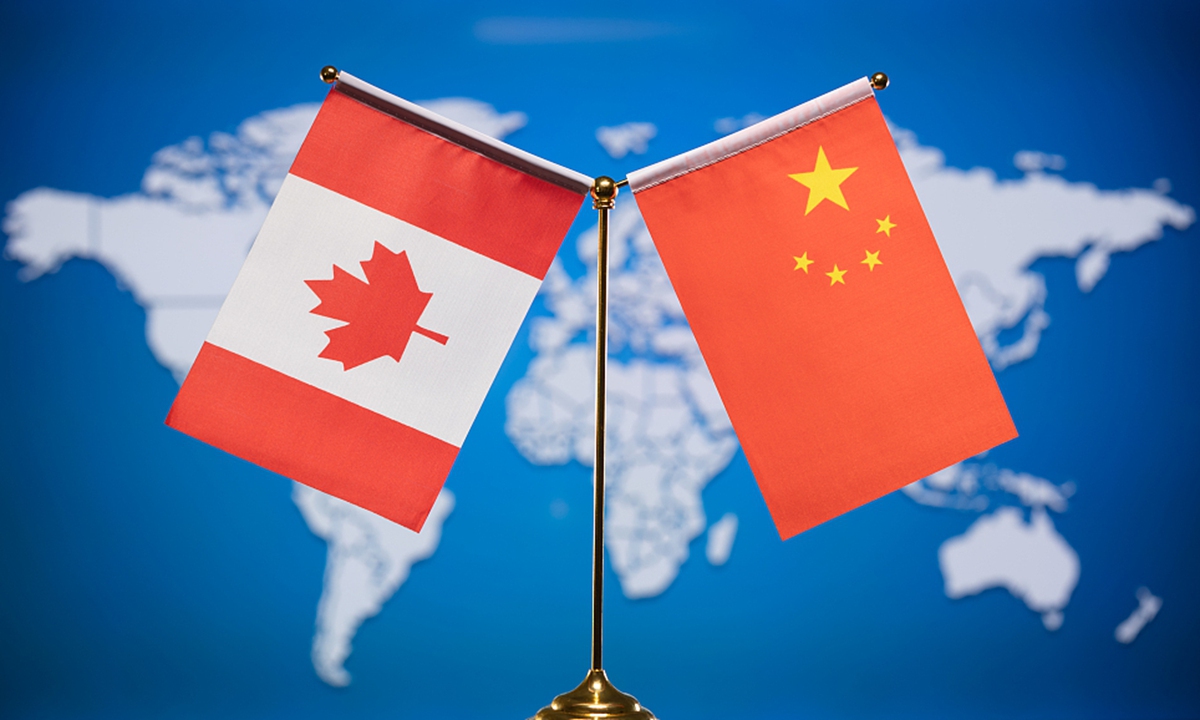
China, Canada Photo: VCG
While some Western media outlets tried to draw a link between the Chinese regulatory fine against Canadian clothing maker Canada Goose (CG) and China-Canada tensions, observers should turn their attention to what the Canadian government has done to a Chinese company as a genuine example of political discrimination and suppression.
China Mobile International Canada (CMI Canada) is asking the Federal Court to put on hold a government order directing the Chinese telecommunications company to divest its stake in its Canadian subsidiary on national security grounds, the Canadian Press reported on Saturday.
The case doesn't bode well for anyone who is concerned about the future direction of China-Canada economic and trade relations. CMI Canada has been operating in Canada for many years although it does not own nor operate any telecommunications facilities in the country.
With no evidence supporting wild allegation that the company is a national security threat or engaged in espionage, the Canadian government's attempt to kick the Chinese company out of its market lays bare its political discrimination against Chinese companies and investments.
Some might use the fine imposed on Canada Goose to accuse China of politicizing Canadian business activities in China, but the two cases are fundamentally different. According to Chinese market regulators, Canada Goose claimed that the materials used in its products "all contain Hutterite, which is good and the best down feather to keep warm in Canada."
Canada Goose's claim was not supported by the materials used in the product, and was in clear violation of Chinese advertising laws. In the CMI Canada case, however, the Canadian government has no evidence to prove there is a national security threat or any espionage activity.
The current political atmosphere in Canada is restless with lousy hostile voices against China, which is heavily influenced by the US. While accusing China of the so-called "coercive diplomacy," Canada has taken the side of the US in the hope that it may lead to some political or trade benefit from Washington. As one of the US lackeys, Canada is pursuing the "political correctness" of getting tough on China.
This has been perfectly reflected throughout Canada's current electoral campaign, which culminates in the public heading to the polls on September 20.
The Canadian Conservatives have showed an unusually hostile attitude toward China by outlining a platform that would shift trade priorities away from China, including banning Huawei Technologies from Canada's 5G infrastructure rollout, while intending to engage in "greater political cooperation" with the island of Taiwan.
While it is not uncommon for Western politicians to play the anti-China card to cater to the toxic political atmosphere during an election, no party should make irresponsible promises in the hope of gaining additional votes. Fear-mongering about a further deterioration in China-Canada relations is playing politics, which is never in the interest of Canada.
If the Canadian government continues to turn its hostile attitude into policies against Chinese companies, it would be delusional to expect China not fight back with proportional countermeasures. Moreover, Chinese companies have invested considerably in the Canadian market in accordance with Canadian laws and business standards. They should defend their rights in court if they're forced to withdraw from the market by the reckless actions of some desperate politicians in Ottawa.




